explore
Mammals
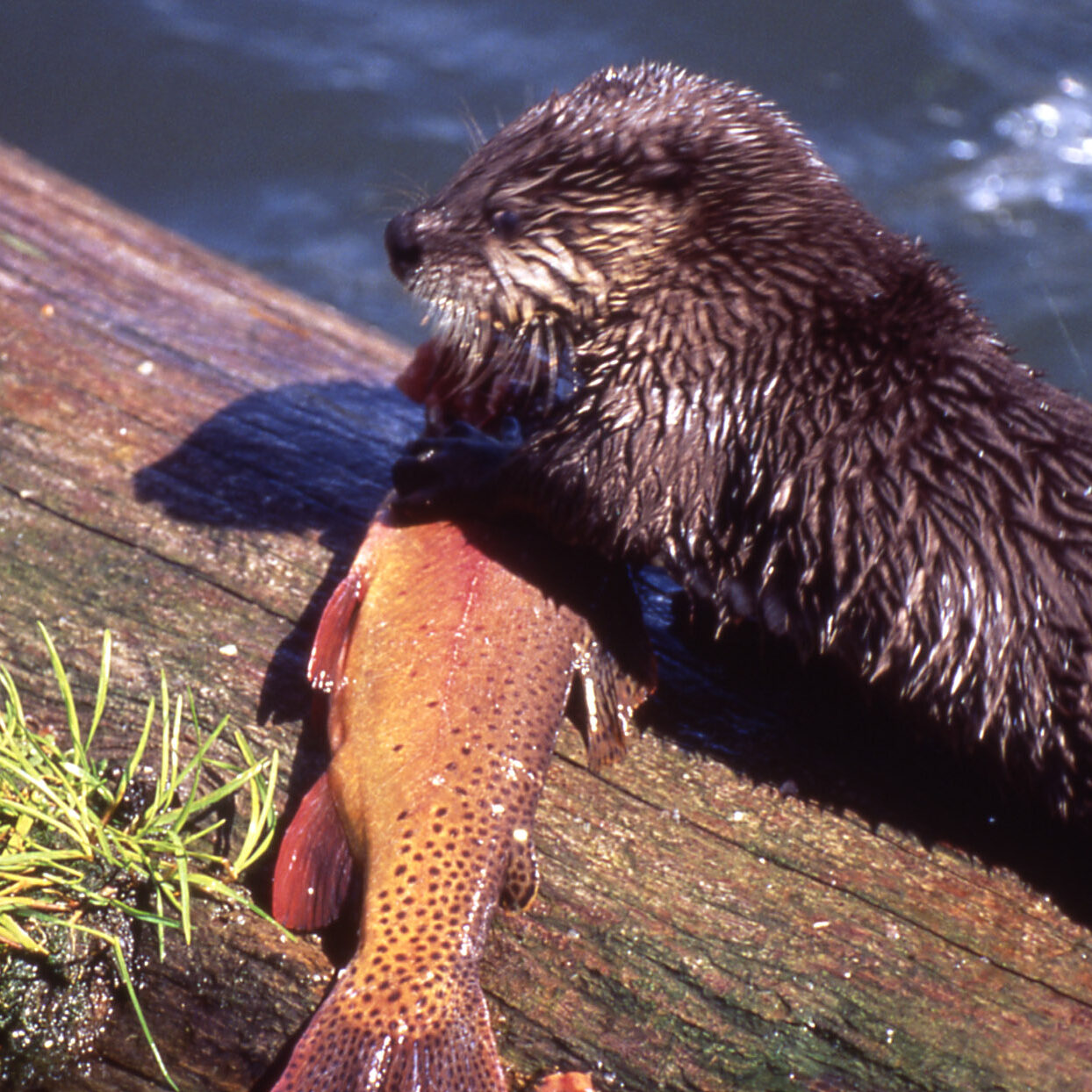
Water Relationships
Besides their water-resistant fur, beavers, otters, and lemmings are all semi-aquatic, meaning they can dwell partly or entirely in bodies of water. These mammals hunt in water for fish and other animals, but may become the prey when they spend time on land. Because of this, they need easy access to water to stay safe from land predators.
Riverbank and Shoreline Relationships
This easy access to water is provided by the characteristics of the shoreline. Otters in particular like to create otter slides, chutes that have been worn on the riverbank by frequent use to enter or exit the water. Beavers and otters build dens on the riverbank, which means it needs to be healthy and stable.
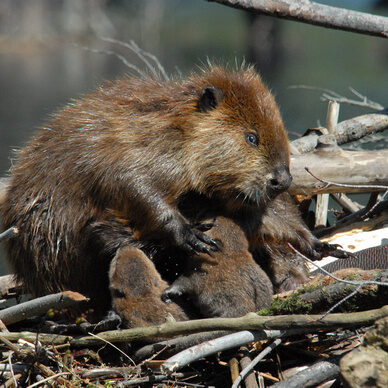
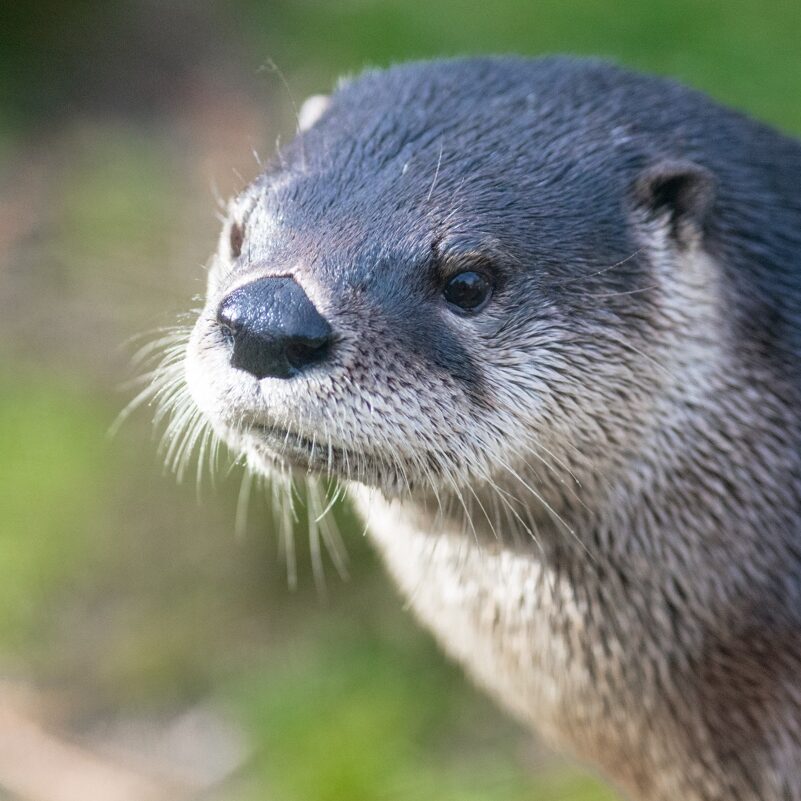
Plant Relationships
Freshwater mammals use vegetation to build their nests and insulate them from cold. Although otters eat mostly fish, beavers rely on wood as their main food source, and lemmings are herbivorous and rely on smaller vegetation for food.
Relationships with Other Animals
Otters are sometimes the top predator in their ecosystem! They help control fish and amphibian populations. Beavers can change the ecosystem around them and make it easier for other animals to find nesting, breeding or hunting ground. They do this primarily by making dams and moving wood. Lemmings are a food source for other predators. Without these creatures, freshwater ecosystems would look very different!
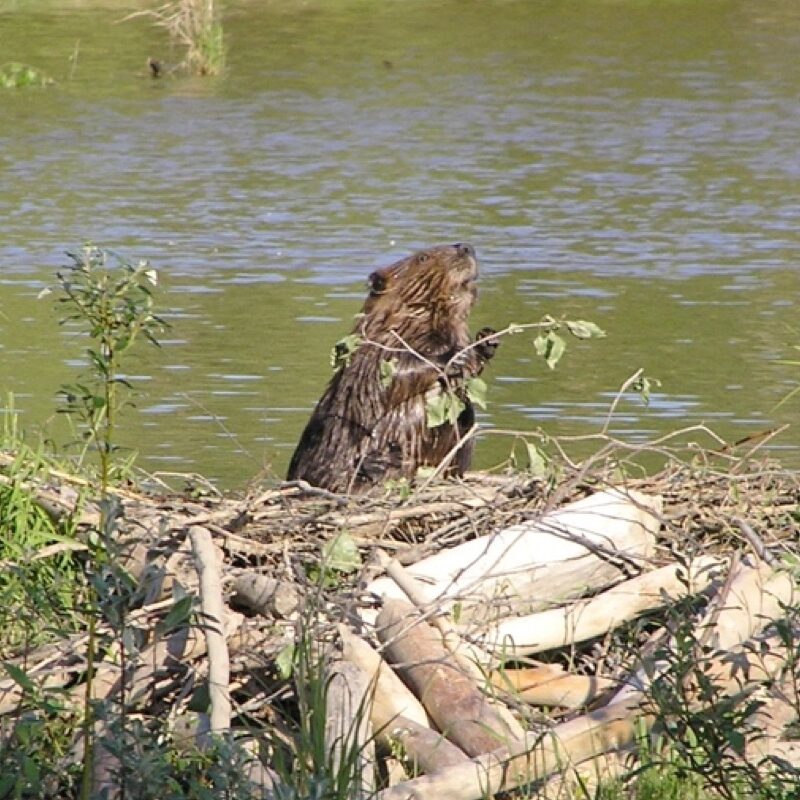
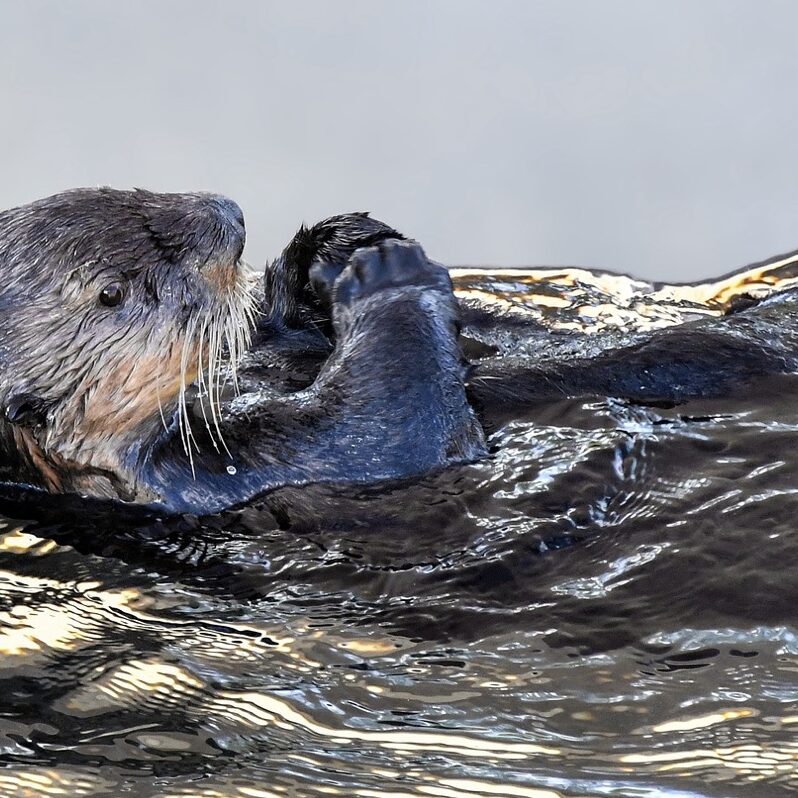
Weather Relationships
These animals tend to prefer colder water, and they are more adapted to cold weather than a lot of other animals due to their thick fur. Otters, beavers, and lemmings do not hibernate. Instead, they become less active during the winter but continue to move around to get food. Beavers will store tree branches at the outer base of their dens using mud so they do not have to go far to reach them.